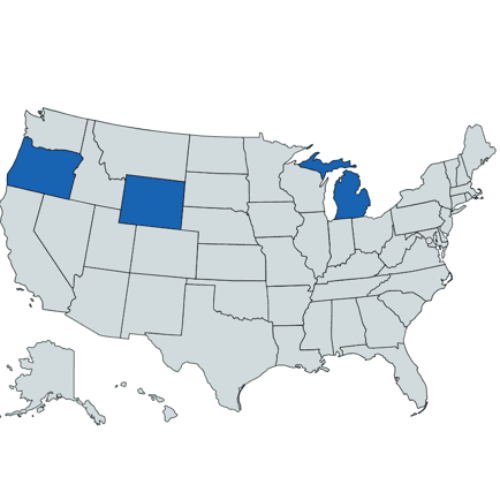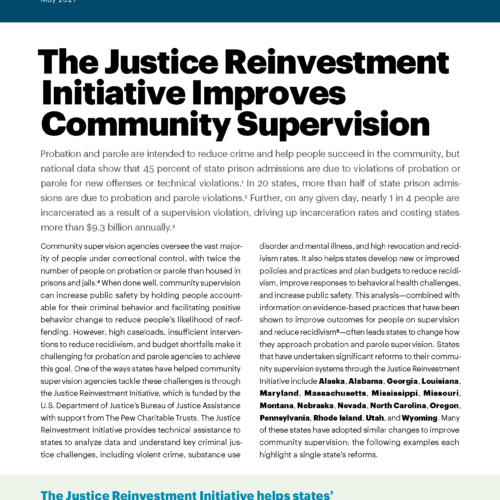Justice Reinvestment in Wyoming
The Problem
In 2018, Wyoming’s prisons were at capacity, and 88 people from the state were being housed at a prison in Mississippi. The prison population was projected to grow, in part because of revocations from supervision, many of which were driven by drug offenses. This growth would have resulted in dramatic increases to the corrections budget. At the same time, recent declines in state revenue were hindering Wyoming’s ability to invest in strategies to lower recidivism and reduce crime.
How JRI Helped
To address these challenges, in March 2018, state leaders requested support from the U.S. Department of Justice’s Office of Justice Program’s Bureau of Justice Assistance and The Pew Charitable Trusts to explore a Justice Reinvestment approach.
Under the direction of Wyoming’s Joint Judiciary Committee (JJC), staff from the CSG Justice Center conducted a comprehensive analysis of data and helped the JJC develop policy options that were designed to both increase public safety and contain the cost of corrections in the state. These policies were reflected in House Enrolled Act (HEA) 15 and 52 and Senate Enrolled Act (SEA) 19 and 50, which were signed into law by Governor Mark Gordon in February 2019.
The legislation provides additional tools to support judges as they determine probation terms and sentence lengths; increases support for victims of crime; holds people on probation and parole accountable with swift, certain, and proportional sanctions; and focuses probation resources on people during the time when they are most likely to fail on supervision.
By achieving targeted reductions in revocations, the state expects to avert up to $18.1 million in contract bed costs by 2024. The state has achieved some of these savings already. All individuals housed in contract beds in Nebraska and Mississippi were returned to Wyoming facilities in July 2020. This is money that can be reinvested in increasing the availability and effectiveness of community-based behavioral health treatment for people on community supervision.
In early 2020, the state legislature passed House Bill 0031 to strengthen behavioral health treatment and programming for people in the criminal justice system with evidence-based practices and robust quality assurance measures. To support statewide implementation of new treatment guidelines and standards, the bill also appropriated more than $300,000 to staff the DOC’s quality improvement unit. This unit is responsible for training and oversight to ensure that the new guidelines are implemented properly across the state.























